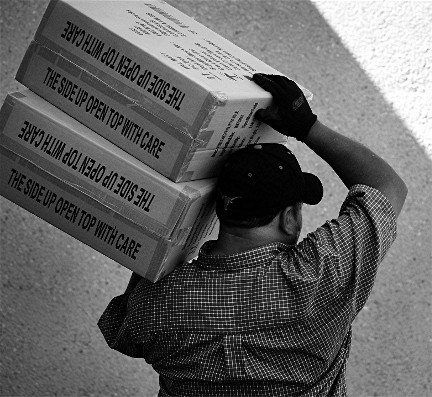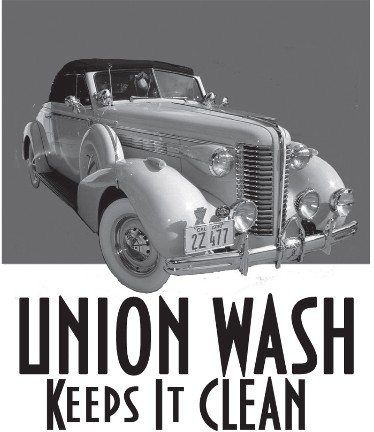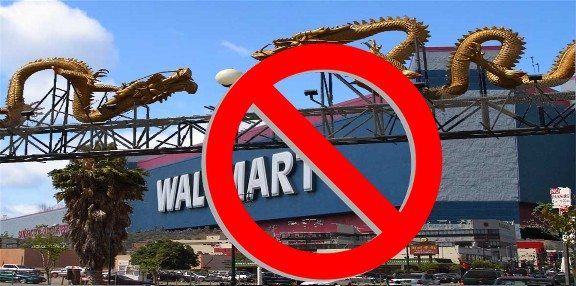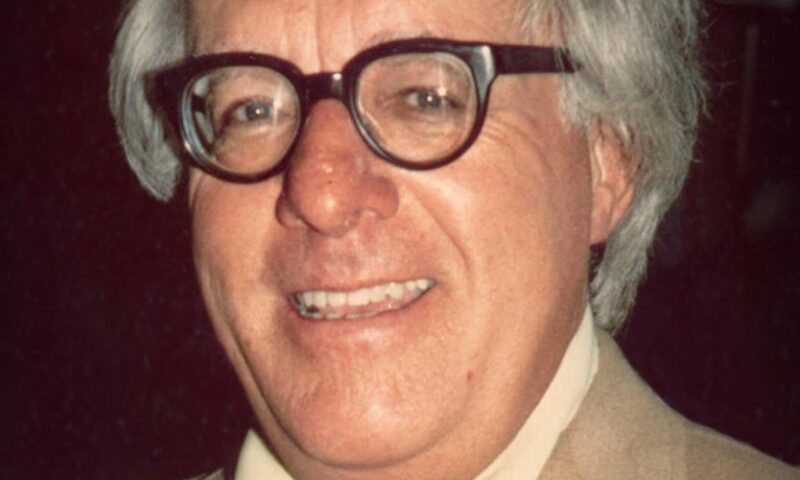

(The following post first appeared on the California Labor Federation’s Labor’s Edge site.)
We knew it was bad, but we didn’t know it was this bad.
Walmart has an outsized influence on Southern California – on multiple sectors, on tens of thousands of jobs and even on our environment. In the new report Chain of Greed, the well-respected National Employment Law Project documents the giant retailers’ negative impact on our region and details conditions inside Walmart-contracted warehouses. This is what NELP found:
Jesus Sauceda,


After a year-long campaign by labor and community groups on behalf of carwasheros in what is traditionally a progressive town, the City of Santa Monica will no longer contract with car-wash businesses that are not in compliance with federal and state employment laws.
In addition to strict implementation by the city’s Finance Department of existing policies that require those receiving City dollars to comply with laws, the Santa Monica City Attorney’s office will investigate practices at all four car washes located in Santa Monica as part of its Consumer Affairs operations.
Rather than employ public workers to wash city trucks, police cars and other vehicles, Santa Monica, like many other cities, contracts with local car washes to keep its vehicles clean. After California’s Attorney General reached a settlement with Bonus Car Wash in Santa Monica that resulted in the business agreeing to a contract with the United Steelworkers Union,
» Read more about: Santa Monica: Car Wash Businesses Must Come Clean »


Wednesday, June 13, near the very spot where Walmart hopes to establish a beachhead in central Los Angeles, labor, community and political leaders will put the retail giant on notice that it can forget about getting the red carpet treatment. The company’s plans to open an express store selling groceries in Chinatown have provoked widespread opposition that goes beyond mere irritation over the arrival of a corporate megachain.
As Frying Pan News has documented, Walmart typically has a blighting effect on the communities where it locates: Local stores go out of business and the retailer’s workers, who lack decent wages and medical coverage, must rely on for public assistance in the form of food stamps and emergency room visits.
But it is mostly the dismal working conditions of employees at Walmart and its suppliers that is fueling resistance to the company’s expansion. Only yesterday foreign guest workers employed by a Louisiana seafood supplier to Walmart went on strike against what they say are long,
» Read more about: Largest Anti-Walmart Rally Ever to Be Announced »


 The fallout from the failed bid to unseat Wisconsin Governor Scott Walker, along with election victories to curtail public-employee pensions in San Diego and San Jose, continues for organized labor. While a number of media stories have questioned the strategic wisdom of trying to unseat a sitting governor who had not been accused of criminal wrongdoing, many moderate and progressive writers have been thinking aloud about something more fundamental – the very existence of unions.
The fallout from the failed bid to unseat Wisconsin Governor Scott Walker, along with election victories to curtail public-employee pensions in San Diego and San Jose, continues for organized labor. While a number of media stories have questioned the strategic wisdom of trying to unseat a sitting governor who had not been accused of criminal wrongdoing, many moderate and progressive writers have been thinking aloud about something more fundamental – the very existence of unions.
“These votes,” the Atlantic.com’s Derek Thompson writes, “didn’t announce a new trend. They reminded us of a very old one.” His post’s title asks the disturbing question, “Are Unions Necessary?” It turns out he doesn’t have an answer. After we follow a recap of the long, slow decline of labor over the past half century, and some scary line graphs comparing plummeting union membership numbers with the fall of middle-class incomes,


There’s no pleasing stock traders. No sooner had European financial ministers granted Spain’s banks a $125 billion bailout than investors began worrying about Italy’s ability to pay its national debt – and to pitch in to save Spain. According to The New York Times, “[b]ecause Italy does not have enough economic growth to generate the money itself, the government will probably have to borrow it at high interest rates, adding to an already heavy debt load.” The Times on Monday quoted Italian Prime Minister Mario Monti’s pessimism: “There is a permanent risk of contagion.”
Although the mention of a European economic plague certainly makes ears stand up, the continent’s continual financial woes more resemble a Möbius strip of dominoes. With each new agreement to save one of the Mediterranean PIGS (Portugal, Italy, Greece, Spain), a new panic spreads on the floors of Europe’s stock exchanges.


Much was made in Ray Bradbury’s obits last week of his paradoxical nature: He was a science fiction writer who never drove a car or used a computer, a seer who looked to the past to describe the future. All of which was true – Bradbury was one of the few authors who could make a trip to the next century seem like a sentimental journey. The reason is that so much of his Tomorrowland was really mid-20th Century America dressed up in a space suit and relocated to Mars. The Midwestern front porch on a summer evening, lit by fireflies and the murmur of conversation, was as key to Bradbury’s fictional worlds as rocket ships and robots.
In fact, Bradbury is too often typecast as a science fiction writer – after all, he wrote a number of plays for Los Angeles theater, along with the screenplay for John Huston’s film Moby Dick and the narration for King of Kings.


Even as transit agencies around the U.S. are cutting back on bus and rail service and raising fares, L.A. has embarked on this country’s most ambitious transit expansion — from 118 miles and 103 stations to 236 miles and 200 stations, a work program likely to generate an estimated 400,000 construction jobs.
For the first time ever in Southern California there are three lines under construction at the same time: Expo to Santa Monica, the Gold Line to Azusa and the Orange Line to Chatsworth. Add the Crenshaw Line and the downtown L.A. Regional Connector — utilities are being relocated now so construction can begin — and that’s five lines under construction.
Suddenly the world is looking at Los Angeles in a very different light. As Brookings Institution spokesman Adie Tomer told the Los Angeles Times:
“You have this archetype of L.A. as the highway city of America.
» Read more about: Honoring the Champions of Better Transit »


(Editor’s Note: This American Prospect post appeared on the eve of last Tuesday’s Wisconsin recall vote and, as such, only anticipates events that have since occurred. Still, Harold Meyerson offers some astute insights into why that recall effort ultimately failed.)
We don’t know the outcome of Tuesday’s gubernatorial election in Wisconsin, of course, but we do know this: Even if labor somehow manages to oust Republican Governor Scott Walker, the result will be nothing like the resounding repudiation that Ohio voters delivered last year in repealing that state’s anti-collective bargaining law pushed by an equally controversial GOP governor, John Kasich.
Why the difference? Kasich’s bill went beyond Walker’s in banning collective bargaining for cops and fire fighters, which proved a decidedly unpopular position, but that can hardly account for more than a fraction of the difference. Moreover, Wisconsin is generally regarded as a more liberal state than Ohio.


A June 4 Los Angeles Times article reported that hotel rates for business travelers in North America surged 9.3 percent in April, coming within 3 percent of the peak pre-recession rates in fall 2008. Rates for leisure travelers also rose 7.3 percent. The report also indicated that rates will continue to increase as demand continues to rise. This is a big deal because it means travel (both leisure and business) is heading in a positive direction since the 2008 recession hit. A city like Los Angeles – that hosted a record 26.9 million visitors last year – has a great opportunity to capture this rise in tourism. As the number one employer in L.A. County, home to pristine beaches, year-round beautiful weather and other attractions, tourism is poised to be one of the primary sectors that will lead Los Angeles out of the recession.
However, Los Angeles has some major work to do to be a leader in tourism and to develop a sustainable model that equally benefits the industry,
» Read more about: Travel's Up — Will Los Angeles Rise to the Occasion? »


The New Republic’s Richard Yeselson has a perceptive piece on that publication’s website that’s worth reading before our collective amnesia allows us to forget all about Governor Scott Walker’s recent electoral triumph.
“Not With a Bang, But a Whimper: The Long, Slow Death Spiral of America’s Labor Movement” is, as you might surmise, another in a series of post-Wisconsin election eulogies for American unions. Yet it’s much more, becoming a meditation on the place unions once occupied in the American imagination, both in politics and pop culture, and how their mention today barely elicits shrugs – even from many union members.
Yeselon likens unions to the typewriters that many writers of a certain age profess affection for but which none of us will ever return to using. “The problem isn’t that most people hate unions,” he writes.
» Read more about: WebHot: Why Unions Are Typewriters and Not Laptops »